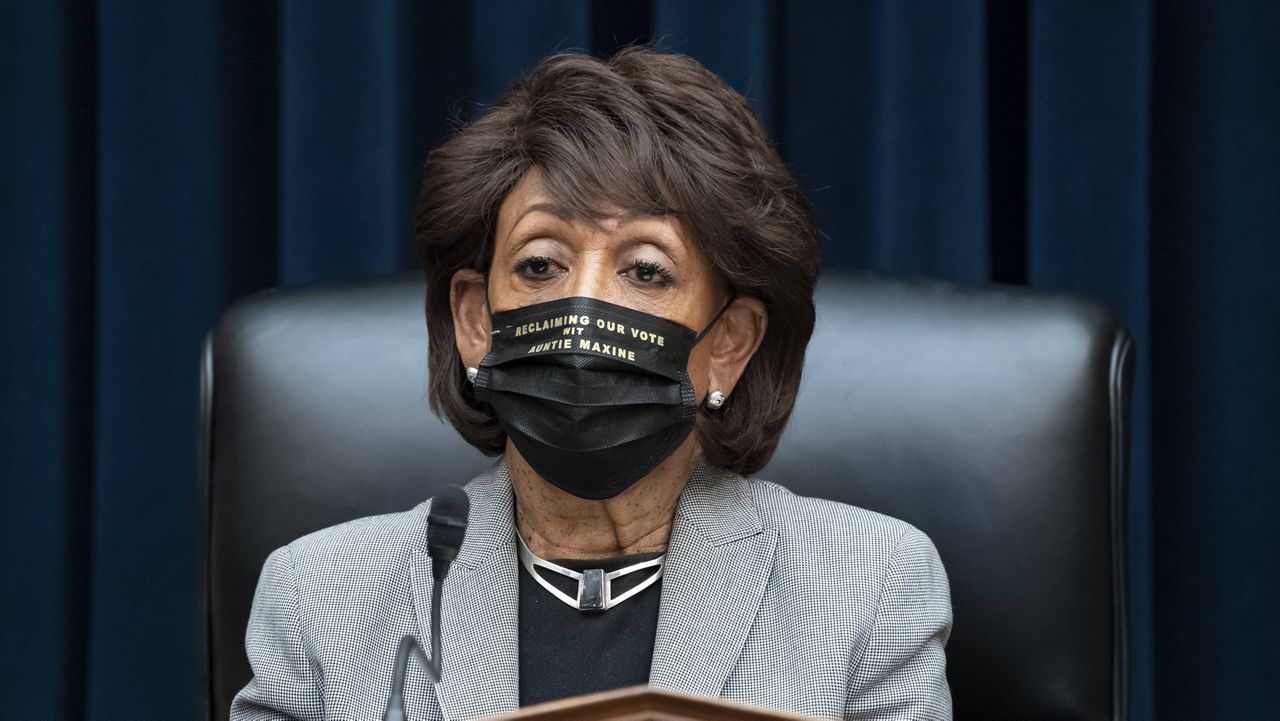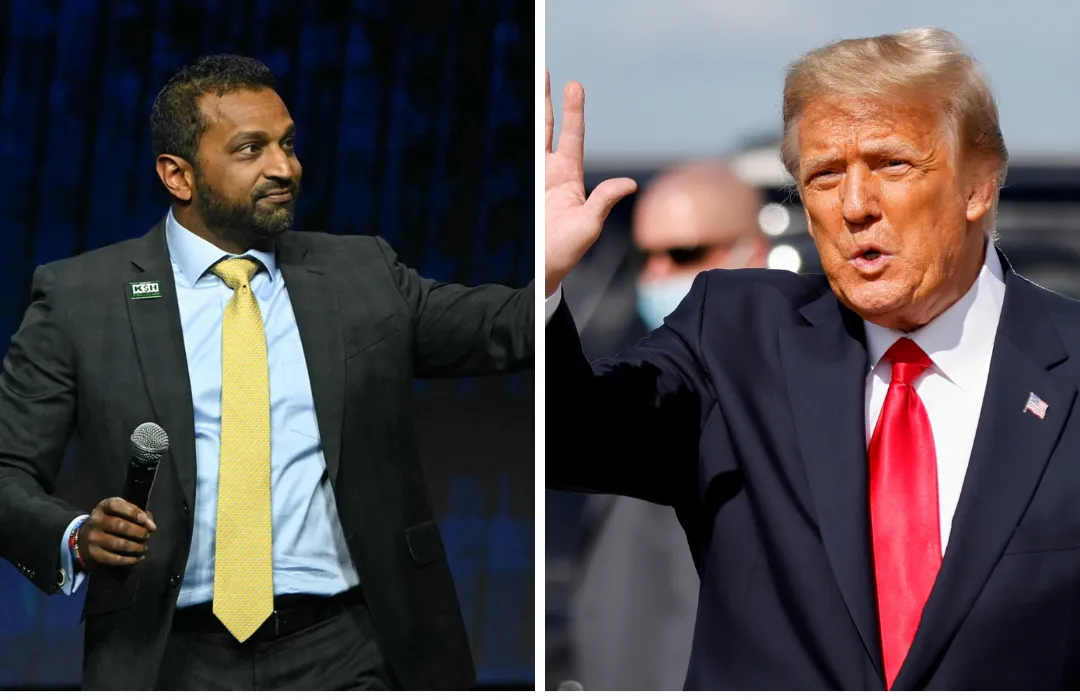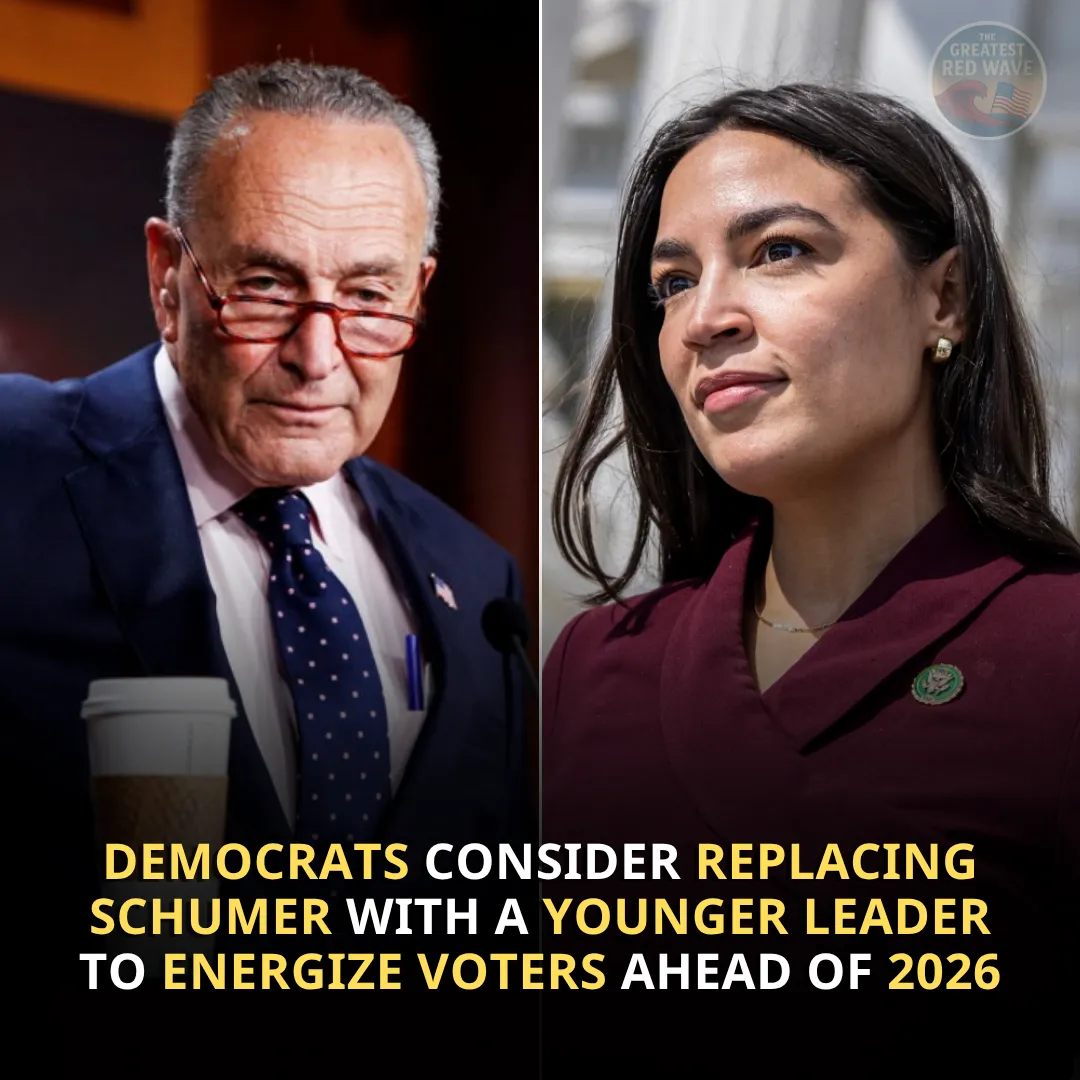As Congress hurtles toward another government shutdown, a tense exchange between Representative Maxine Waters and a reporter has intensified the debate over whether Democrats are tying federal funding negotiations to taxpayer-financed healthcare for undocumented immigrants.
The clash unfolded on Capitol Hill Tuesday, just hours before a midnight deadline to pass a continuing resolution that would have kept the government open.
The deadline passed without resolution after a Senate vote failed to secure the 60 votes required for passage. Although three Senate Democrats broke ranks to side with Republicans in supporting a House-passed measure, the effort fell short 55–45.
The failure triggered a shutdown and set off a new round of partisan finger-pointing over who was to blame and what priorities derailed the process.
Waters, a California Democrat and senior member of her caucus, found herself at the center of controversy following an interview with Lindell TV reporter Alison Steinberg. Her comments, and the heated way in which she defended them, have become emblematic of the larger divide in Washington.
Steinberg pressed Waters on whether Democrats were prioritizing healthcare for illegal immigrants over keeping the government open. At first, Waters sought to avoid a direct answer, stressing instead that healthcare remained a top priority for her party in negotiations.
“But are Democrats demanding health care for illegal aliens?” Steinberg asked pointedly.
“Democrats are demanding health care for everybody,” Waters responded. “We want to save lives. We want to make sure that health care is available to those who would die but having the help of their government.”
Her words were interpreted by some as an admission that Democrats intended to include undocumented immigrants in their healthcare demands. Steinberg followed up, asking if Waters would support a shutdown “even if it means giving healthcare to people who aren’t Americans.”
That line of questioning provoked frustration. “What you’re trying to do is you’re standing here and you’re trying to make me say that somehow we’re going to put non-citizens over Americans,” Waters snapped. “Quit it. Stop it. This is the kind of journalism we don’t need. You’re divisive.”
The exchange quickly circulated online, drawing cheers from Democratic supporters who praised Waters for refusing to be cornered, but also heavy criticism from Republicans who seized on her statements as proof of misplaced priorities.
The failed vote marked the latest stalemate in a Congress increasingly defined by gridlock. The House Republican measure that fell short was intended to extend government funding until November 21 while maintaining previously agreed-upon spending levels. Republicans framed it as a “clean” bill, free of additional demands.
Democrats, however, pushed for the inclusion of provisions tied to healthcare, including a permanent renewal of Affordable Care Act tax credits and, according to Republicans, provisions that would extend taxpayer-funded care to undocumented immigrants.
Vice President JD Vance, speaking after a White House meeting with legislative leaders, blasted the Democratic approach. “If you look at the original they did with this negotiation, it was a $1.5 trillion spending package, basically saying the American people want to give massive amounts of money, hundreds of billions of dollars to illegal aliens for their health care, while Americans are struggling to pay their health care bills,” Vance said.
“That was their initial foray into this negotiation. We thought it was absurd.”
Republicans have insisted that the focus should be on lowering costs rather than continuing subsidies without reform. By linking funding to broader healthcare demands, Democrats, in the GOP’s view, engineered a stalemate that inevitably resulted in a shutdown.

While most Senate Democrats stood with Majority Leader Chuck Schumer in rejecting the House bill, three broke ranks: Senator Catherine Cortez Masto of Nevada, Senator John Fetterman of Pennsylvania, and Senator Angus King of Maine, an independent who caucuses with Democrats.
Their votes highlighted cracks in Democratic unity and signaled growing unease among moderates about being seen as obstructing a straightforward funding measure.
Even so, the defections were not enough. With the measure falling short of the 60 votes needed to advance, the shutdown became unavoidable. Republicans have indicated they will reintroduce the bill on Wednesday, believing that additional Democrats might cross over in order to quickly reopen the government.
Such a move would represent a major blow to Schumer’s leadership and potentially shift the political dynamics heading into the next legislative battles.
President Donald Trump, speaking to reporters earlier Tuesday, emphasized the stakes of the showdown. “Thousands of federal workers could face permanent job losses if Democrats proceed in a way that triggers a shutdown,” Trump warned.
His remarks underscored the administration’s determination to frame Democrats as responsible for the disruption.
Trump and Vance have repeatedly hammered Democrats for seeking to prioritize non-citizens in spending negotiations, a charge Democrats have denied but struggled to fully shake off. The optics of Waters’ exchange with Steinberg provided Republicans with fresh material to reinforce their narrative.
At the core of the dispute lies the issue of healthcare, a perennial battleground in American politics. Democrats argue that universal access should extend to everyone, including undocumented immigrants, as a matter of public health and morality.

Waters’ comments reflected that position, though critics accused her of dodging the question of whether such policies should come at the cost of keeping the government open.
Republicans counter that taxpayer-funded healthcare should be strictly reserved for American citizens. They argue that extending benefits to undocumented immigrants not only places undue strain on resources but also undermines efforts to control healthcare costs for citizens already struggling with high premiums and out-of-pocket expenses.
By tying the funding extension to healthcare provisions, Democrats elevated the issue from a policy debate to the central factor in a government shutdown, making it a high-stakes political gamble.
Already, the shutdown has become a messaging war. Republicans quickly branded the funding lapse as the “Schumer shutdown,” echoing past tactics where blame is pinned on congressional leaders.
Schumer, for his part, accused Republicans of refusing to engage in serious negotiations, but his argument was undercut by Democratic defections in the Senate vote.
For Waters, the viral interview placed her squarely in the spotlight. While her fiery rhetoric resonates with her base, it also feeds into Republican portrayals of Democrats as prioritizing outsiders over citizens. The moment may energize partisans on both sides, but it complicates Democratic efforts to unify their messaging.
With Republicans planning to bring the funding measure back for another vote, the immediate question is whether additional Democrats will join the three who already broke ranks.
If so, the government could reopen quickly, though at the expense of Schumer’s leverage and the healthcare demands Democrats have sought to include.
For now, the standoff continues, with federal workers caught in the crossfire and public patience wearing thin. Each day of a shutdown carries economic consequences, from delayed paychecks to disrupted services. Politically, the longer it drags on, the greater the risk that one party will be saddled with the blame.
The government shutdown reflects a broader clash over the priorities of Congress and the allocation of taxpayer dollars. For Democrats, the pursuit of expanded healthcare access — potentially including undocumented immigrants — has become a defining demand.
For Republicans, the insistence on a “clean” funding bill without such provisions is both a political strategy and a policy stance.
The explosive exchange between Maxine Waters and a reporter symbolized the raw emotions at play and the difficulty of crafting compromise in today’s hyperpartisan climate.
Whether Democrats can hold their caucus together, and whether Republicans can maintain their own unity, will determine how long the shutdown lasts and who emerges politically stronger.
For now, one fact is clear: the debate over healthcare, immigration, and federal spending has once again paralyzed Washington, leaving millions of Americans uncertain about the future of their government and its ability to function.





